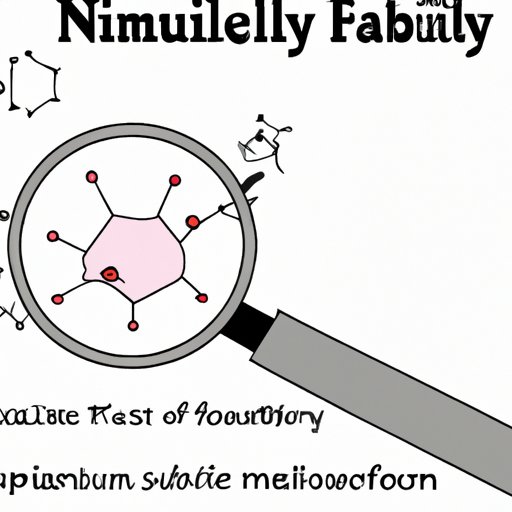Introduction
Falsifiability refers to the ability of a theory or hypothesis to be tested and potentially proved wrong. It is a fundamental concept in science that has been used to build our understanding of the world around us. In this article, we will explore why falsifiability is so important to scientific inquiry and research.
Examining the Role of Falsifiability in Scientific Inquiry
To understand why falsifiability is so important in science, it is necessary to first look at what it is and how it works. Falsifiability is a logical concept whereby a statement or hypothesis can be tested and potentially disproved. As philosopher Karl Popper famously said, “A theory which is not refutable by any conceivable event is non-scientific.” In other words, if a theory or hypothesis cannot be tested or proven wrong, then it is not considered scientific.
The process of falsifiability involves making predictions based on a hypothesis and designing experiments to test those predictions. If the results of the experiment contradict the hypothesis, then the hypothesis is considered to be false. On the other hand, if the results confirm the hypothesis, then it is considered to be true. This process of testing and retesting hypotheses is essential for scientific progress and development.

The Significance of Falsifiability in Scientific Research
One of the main reasons why falsifiability is so important in science is that it promotes objectivity. By allowing for the potential for a hypothesis to be disproved, scientists are able to remain unbiased in their research and avoid confirmation bias. This allows them to objectively evaluate the evidence and draw accurate conclusions from their data.
Falsifiability also helps to ensure the reliability of scientific research. By requiring hypotheses to be tested and potentially rejected, scientists are able to verify the accuracy of their work and avoid relying on outdated or incorrect theories. This helps to ensure that the research being conducted is valid and trustworthy.

The Necessity of Falsifiability for Validity in Science
Falsifiability is also essential for establishing the validity of scientific research. Without the ability to test and potentially reject hypotheses, it would be impossible to determine whether or not a theory is true or false. This is why it is so important for scientists to establish hypotheses and then design experiments to test them.
By testing predictions, scientists are able to either confirm or reject their hypotheses. If the results of the experiment confirm the hypothesis, then it is considered to be valid. On the other hand, if the results contradict the hypothesis, then it is considered to be false. This process of testing and retesting hypotheses is essential for ensuring the validity of scientific research.

Exploring the Benefits of Falsifiability in Scientific Investigations
Falsifiability also has several benefits in terms of scientific inquiry and research. For one, it allows scientists to increase their knowledge by testing and potentially rejecting hypotheses. By doing this, they are able to gain a better understanding of the world around them and uncover new information.
Falsifiability also helps to generate new ideas and enhance understanding. By testing hypotheses and potentially disproving them, scientists are able to think critically about their research and come up with new solutions or approaches. This helps to stimulate creativity and encourages further exploration and investigation.
Understanding the Importance of Falsifiability in the Scientific Method
Finally, it is important to understand the importance of falsifiability in the scientific method. The scientific method involves a series of steps that must be followed in order to accurately conduct scientific research. These steps include formulating a hypothesis, designing experiments to test the hypothesis, collecting data, analyzing the data, and interpreting the results.
Falsifiability is essential for each of these steps. Scientific experiments must be designed in such a way that they can potentially disprove the hypothesis. Accurate data must be collected in order to accurately test the predictions. And the results of the experiment must be carefully interpreted in order to draw meaningful conclusions.
Conclusion
In conclusion, falsifiability is an important concept within scientific inquiry and research that helps promote objectivity, reliability, and validity. Through the process of testing and potentially disproving hypotheses, scientists are able to increase their knowledge and generate new ideas. Falsifiability is essential for the scientific method and is necessary for establishing the validity of scientific research.
(Note: Is this article not meeting your expectations? Do you have knowledge or insights to share? Unlock new opportunities and expand your reach by joining our authors team. Click Registration to join us and share your expertise with our readers.)
